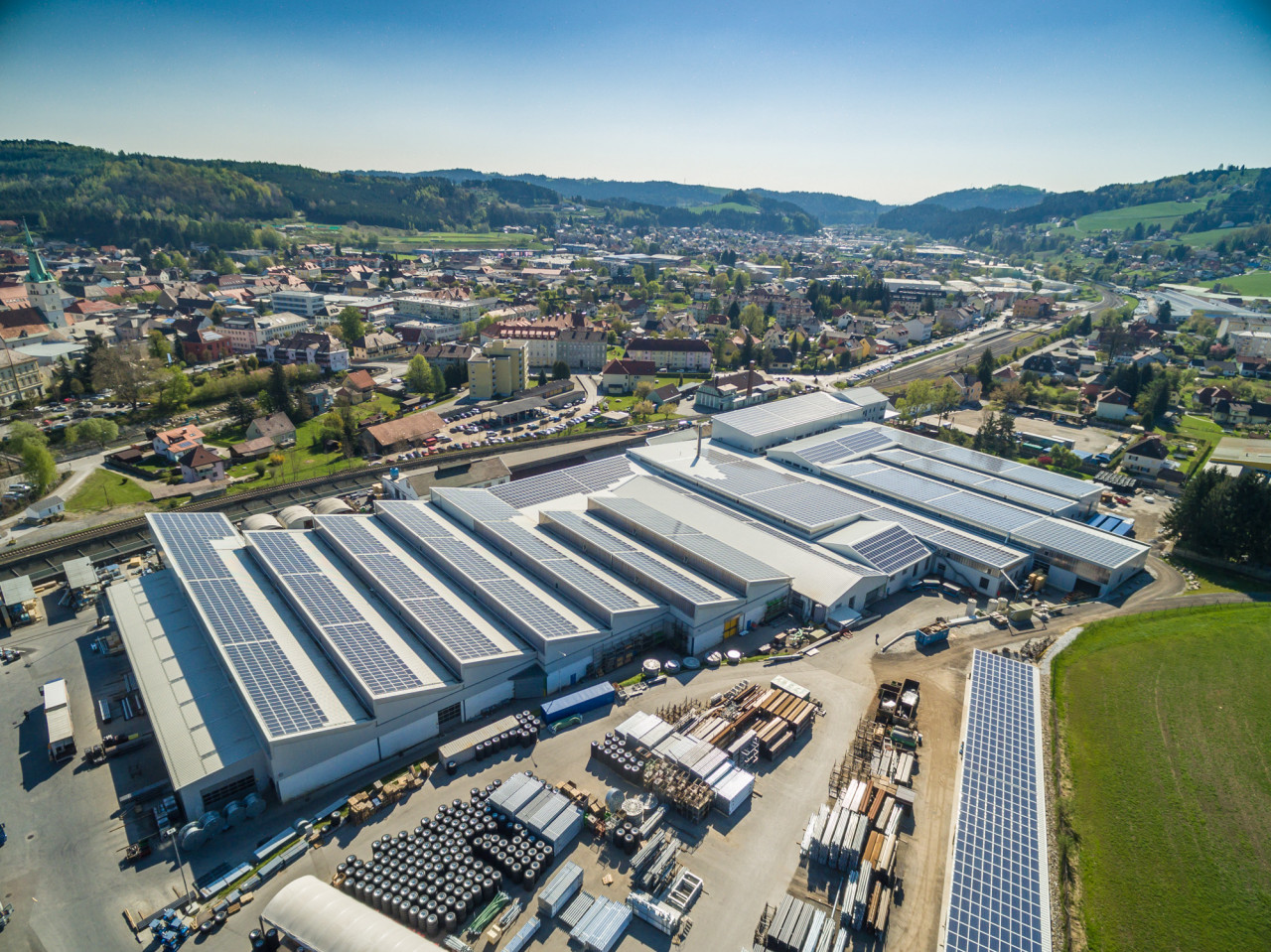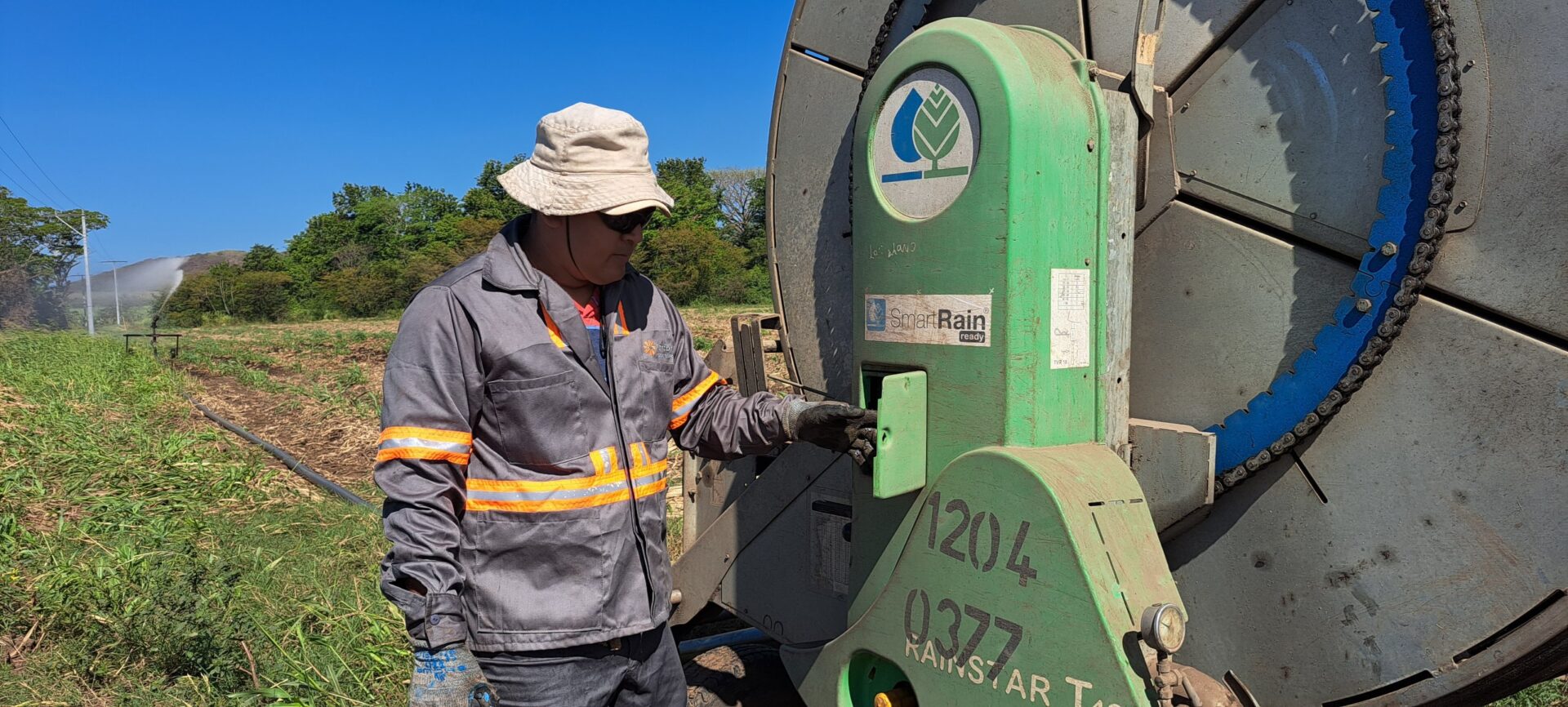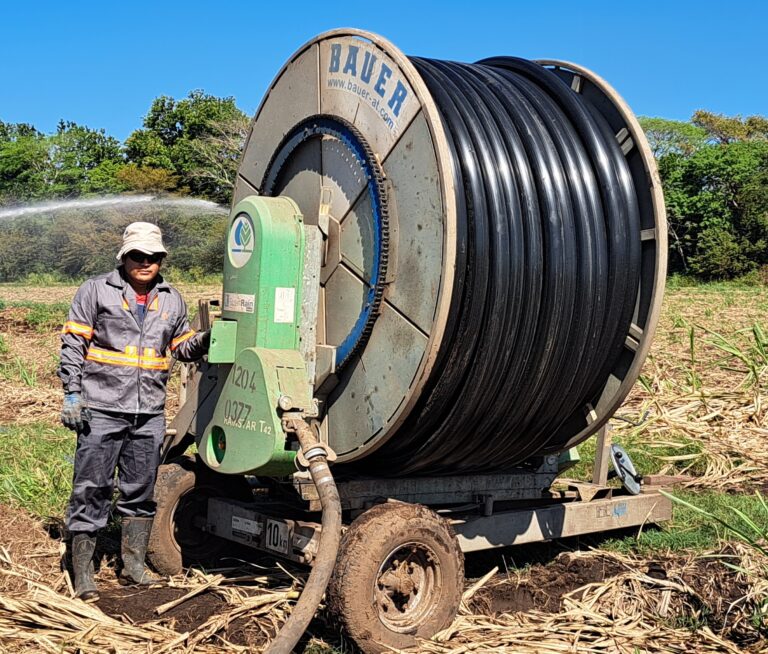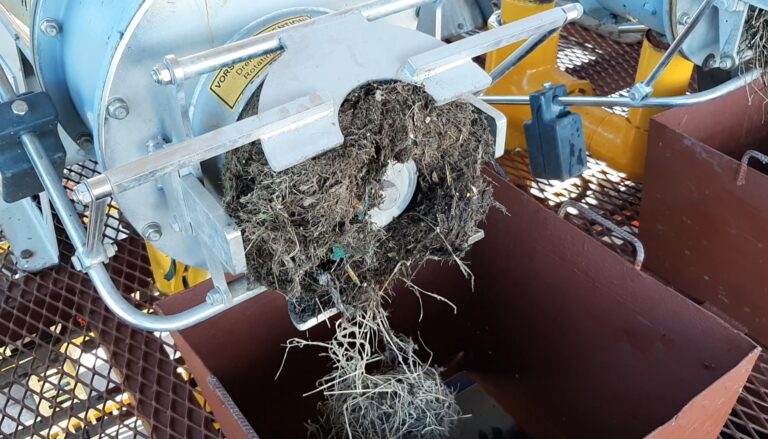

On the Monte Rosa farm in Nicaragua, water from the industrial sugar cane production can be used for irrigation, thanks to BAUER! Rainstars and FAN separators make it possible.

Pantaleon is an agricultural organisation active in Mexico, Guatemala and Nicaragua and dedicated to responsible processing of sugar cane for the production of sugar, molasses, alcohol and energy. Almost 18,000 employees produce 1.2 million tonnes of sugar and byproducts each year. As a member of Pantaleon, Monte Rosa in Nicaragua also grows sugar cane on its nearly 16,000 hectares of farmland. hat makes Monte Rosa unique: 683 hectares of its own fields are irrigated with wastewater from industrial sugar cane processing!
These 683 hectares are located in the community of El Viejo, Chinandega, and are reliably irrigated by 33 BAUER Rainstars, model T42. Sugar cane is only irrigated during the dry season, from November to May, when the average high temperature is 36 °C. During the rainy season (May to October), the average high is 32 °C, with the weather being especially hot and humid from mid July to mid August.

After the harvest, the sugar cane is chopped and ground – 16,000 tonnes per day (the Monte Rosa plant is in operation for a total of 180 harvest days). This is followed by the pressing, boiling and further processing of the sugar cane juice – all the way to packaging of the sugar. These processes require steam and water, which is sourced primarily from the water-rich sugar cane itself. 50% of the industrial waste water is reused in this way. The waste water from the plant is brought to the fields in open canals. However, before the water can be used for irrigation, foreign substances such as fibrous material, grease and soil residue must be separated. This is accomplished with five FAN separators, after which the waste water flows into collecting pools, where heavy solids can settle out. The robust construction, optimal corrosion protection and reliable operation were some of the key factors leading to the purchase of the BAUER Rainstars. The head of the planning department, Alejandro Antonio Castillo Zamuria, was also impressed by the FAN separators: “They improve the physical and chemical quality of the irrigation water clearly.”